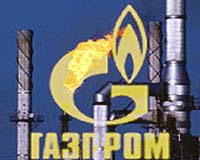 |
Washington DC (UPI) May 07, 2009 Royal Dutch Shell in Nigeria announced it would further delay shipments from one of its leading oil terminals because of extensive damage to an oil pipeline by armed groups angered by the foreign company's presence in the petroleum-rich Niger Delta. The extension of the force majeure of oil shipments from Shell's Forcados terminal was due to continuing efforts to repair the pipeline first damaged in March, Shell officials said Wednesday. The Anglo-Dutch company did not say when production would resume at the Forcados facility. Shell and several other foreign oil companies operating in the delta have become frequent targets for pipeline attacks and kidnappings by armed gangs and militants in recent months. The company's officials in Nigeria have said their output has fallen since the onset of violence by militant groups such as the Movement for the Emancipation of the Niger Delta at the end of 2005. In February, Shell announced a wide-ranging force majeure that drastically curtailed its oil output in Nigeria, blaming militants like MEND for the decision. MEND and similar groups say they are fighting for a more equitable distribution of the country's oil wealth, though critics of the armed groups contend that their cause is merely an excuse to illegally siphon oil from pipelines for sale on the international black market. U.S. oil giant Chevron has also been the victim of MEND attacks, which in recent years have prompted the company at times to halt production because of pipeline attacks or safety concerns. In 2008, Chevron declared a force majeure on its oil exports following a particularly destructive attack on one of its installations. Though Chevron claimed at the time that production was not stymied by the attack, Nigerian energy officials estimated the assault cost the U.S. company about 100,000 barrels a day in production. Attacks on oil installations in the delta have severely hampered production over the last few years, reducing output across the board for both foreign and domestic producers. As recently as 2005, Nigeria was producing about 2.5 million bpd. Earlier this year, government officials estimated that output was down more than 20 percent to less than 1.8 million bpd. Shell, which produces more than 40 percent of Nigeria's oil, has been the victim of a large portion of the attacks since the uptick in delta militant activity four years ago. "They seem to bear the brunt of the militant attacks," Mark Schroeder, a sub-Saharan Africa analyst for Stratfor, told United Press International on Thursday. Schroeder surmised that Shell's considerable presence makes it particularly susceptible to attacks. The company is the largest onshore foreign oil operator in the delta. "If you are hunting around for a pipeline to attack ... chances are you're going to hit a Shell operation," Schroeder said. He also noted the historical malice some delta residents harbor for the Anglo-Dutch firm, which has been accused of colluding with Nigeria's military dictatorship during the 1990s. A group of Nigerian activists and relatives of former delta activists killed from 1990-1995 are suing Shell in a U.S. court for the company's alleged cooperation with the former Nigerian government in the capture and killing of activists who opposed the company's activities, in particular environmental practices, in the delta. The trial is scheduled to begin later this month. Legal experts expect an uphill fight for the suit's plaintiffs considering there is little evidence supporting claims that the former Nigerian dictatorship acted directly on the behalf of Shell. A recent effort by another group of Nigerian activists to sue fellow oil giant Chevron in a U.S. court failed. After 10 years in the making, the suit -- brought by an indigenous-rights group known as the "Concerned Ilaje Citizens" -- failed to find Chevron responsible for the deaths of two people during demonstrations in 1998 at an offshore oil platform that protested the company's economic and environmental impact on the region. Share This Article With Planet Earth
Related Links Powering The World in the 21st Century at Energy-Daily.com
 Analysis: Russia's rising energy prices
Analysis: Russia's rising energy pricesWashington (UPI) May 5, 2009 In the current global downturn, perhaps no energy company has fallen further from financial grace than Russia's natural gas state concern Gazprom. In a frantic search for liquidity amidst declining energy prices in the global recession, Gazprom is considering raising prices for its potentially most volatile customer base -- the Russian consumer. It would be a gesture fraught with risk for the ... read more |
|
| The content herein, unless otherwise known to be public domain, are Copyright 1995-2009 - SpaceDaily. AFP and UPI Wire Stories are copyright Agence France-Presse and United Press International. ESA Portal Reports are copyright European Space Agency. All NASA sourced material is public domain. Additional copyrights may apply in whole or part to other bona fide parties. Advertising does not imply endorsement,agreement or approval of any opinions, statements or information provided by SpaceDaily on any Web page published or hosted by SpaceDaily. Privacy Statement |